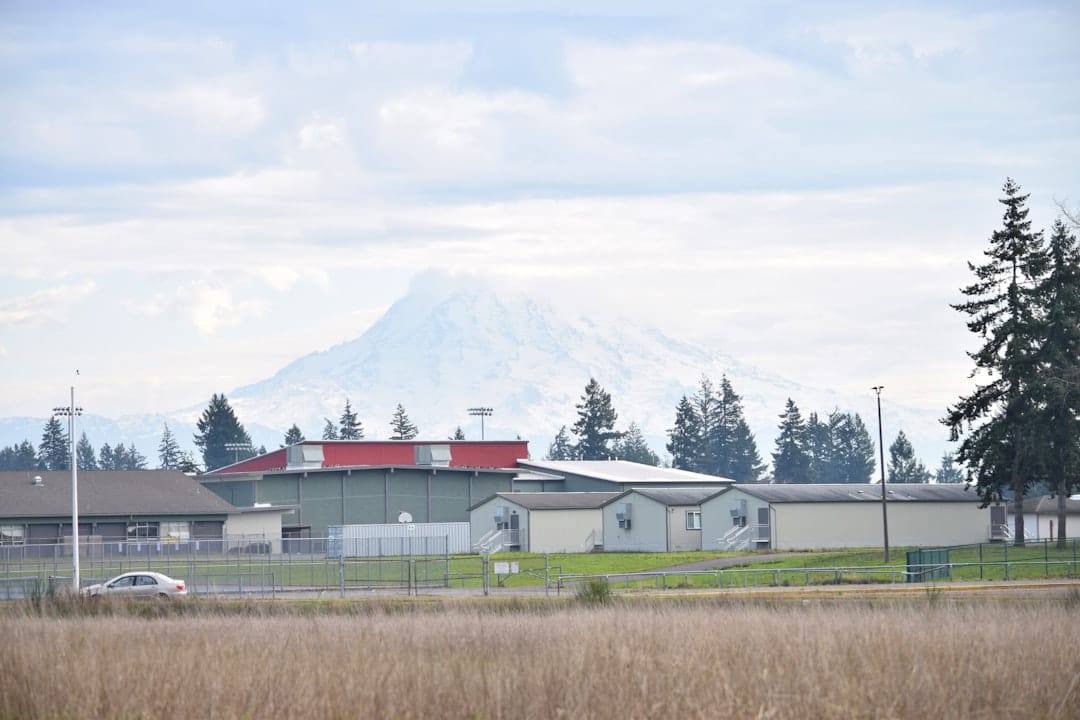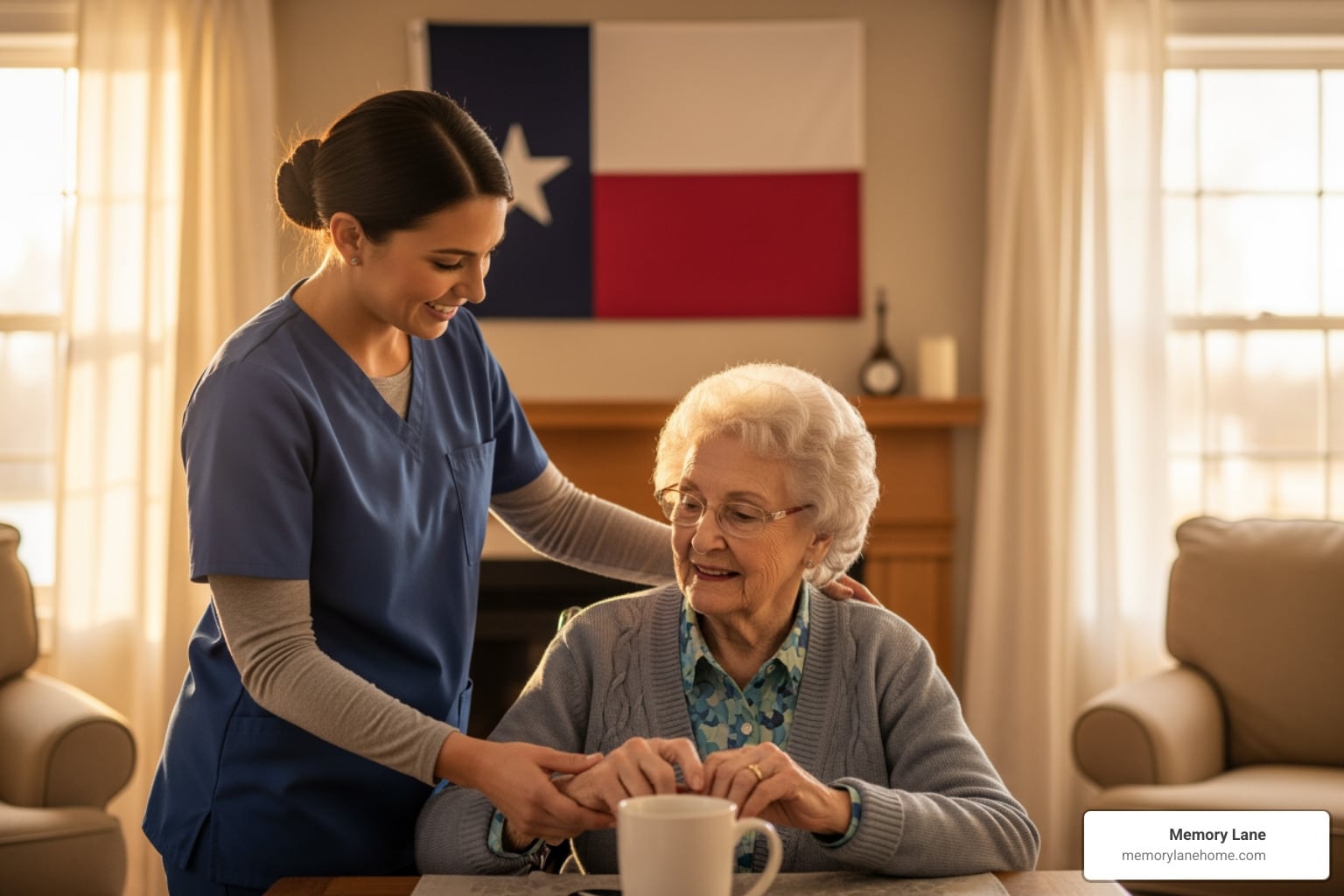Discover Memory care Washington State: costs, Medicaid options, staffing rules & top facilities for dementia support.
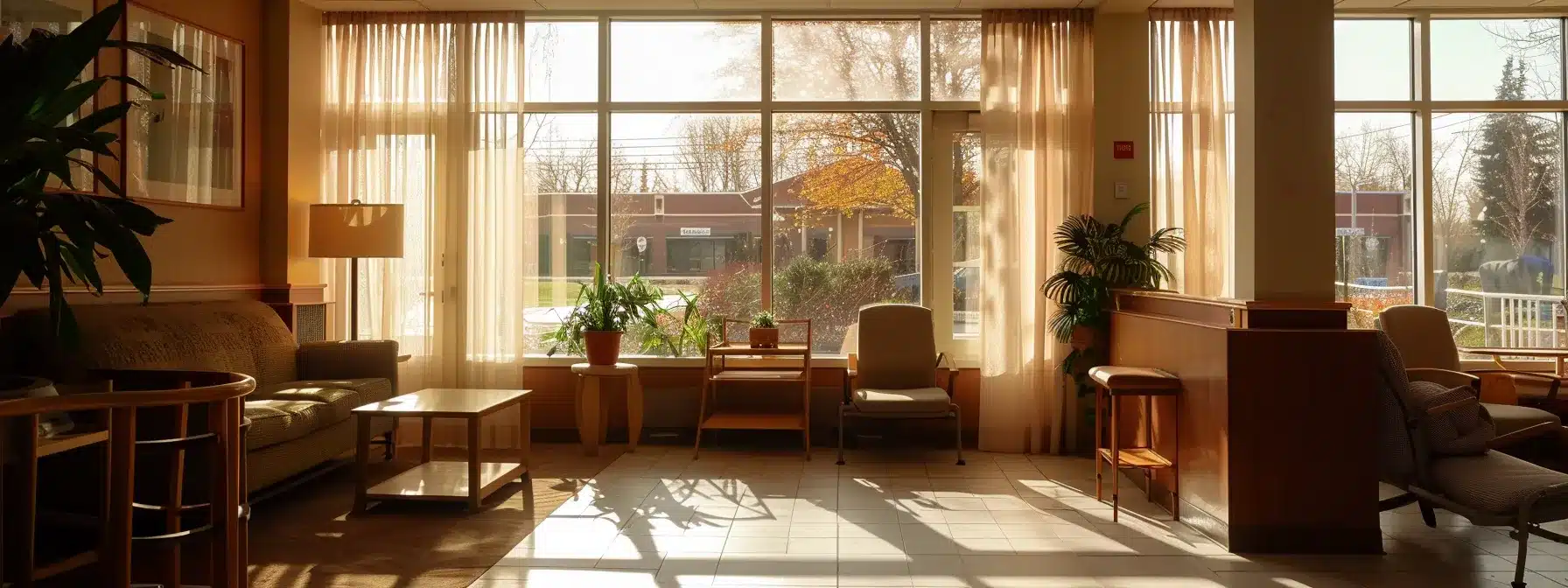
Find Top Dementia Friendly Assisted Living Options Near You
Dementia-Friendly Assisted Living Resources: Table of ContentsTable Of Contents:
- Dementia-Friendly Assisted Living Resources in New York City
- Key Takeaways
- Understanding Dementia-Friendly Assisted Living Options in New York City
- Key Resources for Dementia-Friendly Assisted Living in New York City
- Evaluating Dementia-Friendly Assisted Living Facilities in New York City
- Costs Associated With Dementia-Friendly Assisted Living in New York City
- Finding the Right Dementia-Friendly Assisted Living Community
- Stories From Families in Dementia-Friendly Assisted Living
- Frequently Asked Questions
- Conclusion
Dementia-Friendly Assisted Living Resources in New York City
Is your loved one finding it hard to live comfortably in their current environment? This blog post highlights dementia-friendly assisted living resources in New York City. It outlines options available, details key services, and explains cost factors. Readers will learn practical steps to find the right assisted living facility and understand how these services improve quality of life. The content addresses common concerns and provides clear guidance for families seeking better care.
Key Takeaways
- memory lane assisted living provides specialized dementia care and personalized support
- the facility uses clear routines and structured programs for daily well-being
- families gain practical guidance and firsthand insights from experienced caregivers
- local resources and financial assistance tools help manage care expenses
- interactive online tools support informed decisions for assisted living options
Understanding Dementia-Friendly Assisted Living Options in New York City

This section explains what dementia-friendly assisted living is by addressing its specific features and the need for specialized care in New York City. It covers unique environments, options like long island areas, a place for mom, home care, and village settings, offering practical insights for families seeking quality assisted living resources.
Defining Dementia-Friendly Assisted Living
Dementia-friendly assisted living refers to care settings designed to meet the unique needs of individuals with memory-related conditions. This approach focuses on a secure environment that supports daily activities and health routines while adapting care to each resident’s income considerations and lifestyle choices.
Providers draw on first-hand expertise to create spaces that accommodate veterans and others living with dementia. Facilities integrate practical diet planning and structured programs in areas such as Staten Island, ensuring residents receive the specialized attention necessary to maintain quality care and daily well-being.
Unique Features of Dementia-Friendly Environments
The environment offers a blend of structured programming and personal attention, exemplifying practices such as reminiscence therapy that help maintain cognitive connections. A professional caregiver team ascertains that each resident experiences daily therapy sessions that bolster routine health measures aligned with guidelines from the new york state department of health, ensuring care remains personalized and effective.
The design centers on minimizing stress while promoting mental and physical wellness, a feature often highlighted at memorylanehome. Innovative approaches such as reminiscence therapy paired with active caregiver involvement give residents a sense of familiarity and security, resulting in an environment that supports both immediate needs and long-term well-being.
Importance of Specialized Care for Residents
The specialized care offered in dementia-friendly assisted living facilities plays a crucial role in supporting a resident’s quality of life by providing personalized attention for both mental and physical well-being. The approach employs practical techniques that focus on mental stimulation and effective housekeeping practices, creating environments like secure courtyards and activity zones that enhance brain function and daily comfort.
Expert teams at these facilities ensure that daily routines are designed to boost health through structured programs and dedicated support, resulting in overall improvement in quality of life. Through a commitment to precise attention and well-organized housekeeping, residents benefit from environments that support an active brain and offer spaces such as quiet courtyards for relaxation and recovery.
Memory Lane Assisted Living shows how care can change lives with simple actions that matter. The next part points to trusted aids designed to guide families in New York City.
Key Resources for Dementia-Friendly Assisted Living in New York City

This section examines key support systems, including government and non-profit organizations, local support networks, and accessibility services. It covers aspects of memory, behavior management, supplemental security income, memory care facility options, and risk reduction. Practical insights within these topics assist families in choosing optimal assisted living care with a clear focus on quality and specialized support.
Government and Non-Profit Organizations
The professional team at Memory Lane Assisted Living highlights the support available from government and non-profit organizations that focus on dementia-friendly assisted living in New York City. These agencies offer valuable programs addressing critical aspects such as nutrition, meal planning, and activities of daily living, which directly contribute to maintaining residents’ well-being and independence.
The organizations also facilitate socialization opportunities and provide guidance on pricing options for care facilities, ensuring families make informed decisions that match their budget and care requirements. Their support is evident in detailed resources that include:
- Assistance with meal planning and nutrition programs
- Structured activities of daily living guidance
- Support for socialization initiatives
- Transparent pricing information
Local Support Groups and Networks
The local support groups and networks provide valuable assistance for families seeking dementia-friendly assisted living in New York City, ensuring that the atmosphere remains calm and supportive even with the natural noise of urban living in areas such as Queens and the Bronx. Their approach meets joint commission standards while offering actionable advice and real-life examples to help manage day-to-day challenges:
- Structured meeting schedules
- Community resource sharing
- Practical guidance from experienced caregivers
The networks connect families with service providers who offer direct assistance and coordinate local initiatives, ensuring that the community remains well-informed and prepared to address issues related to noise and busy environments. Guidance from these groups reflects a professional commitment to maintaining a secure and comforting environment while meeting the essential needs of residents and their loved ones.
Accessibility Services and Programs
The professional team at Memory Lane Assisted Living provides a range of accessibility services and programs designed to improve each resident’s quality of life. They incorporate practical solutions such as improved lighting to ensure safe navigation and offer virtual reality experiences that help stimulate memory and engagement in memory care units, addressing concerns commonly seen in individuals with Alzheimer’s and other dementias.
Insightful programs are available for residents with diverse needs, including assistance with health insurance matters and support from expert care coordinators. The approach draws on first-hand expertise from facilities in areas like New Hampshire, providing practical examples of how targeted services can make daily life more manageable for families seeking quality dementia-friendly assisted living resources.
The guide has laid a clear path through trusted resources. Now the focus shifts to weighing options that offer care with dignity and familiarity.
Evaluating Dementia-Friendly Assisted Living Facilities in New York City

Evaluating facilities involves key questions during visits, assessing staff training and support services, and understanding community engagement and activities. The review focuses on practical geriatrics insights, ensuring each patient receives empathy-driven dementia-care and specialized alzheimers care. This framework guides readers through essential considerations as they explore quality assisted living options in New York City.
Key Questions to Ask During Facility Visits
When visiting a facility, it is important to ask about each room‘s setup and the care ratio to ensure that residents receive personalized attention. Inquiries should also cover the range of memory care services provided, including how medication routines are managed to support a safe and supportive environment.
Families can gain valuable insights by discussing the qualifications of the care team and the structured programs available, similar to other trusted facilities along the Hudson River. Engaging with professionals on-site offers practical advice on managing medication schedules and confirms that memory care services are designed to meet the unique needs of each individual.
Assessing Staff Training and Support Services
Evaluating staff training and support services is key to ensuring residents with disease-related challenges receive consistent care, attention, and structured programs. Facilities that incorporate practical components such as music therapy and dedicated training for handling incidents in the bathroom environment show measurable improvements in care quality across counties like those in Connecticut, providing peace of mind for families.
Facilities with highly trained caregivers enable a smooth transition into daily routines, ensuring the effective use of support services designed for dementia care. Real-life examples indicate that consistent staff instruction and adherence to proven methods, including music therapy sessions and safe bathroom management, are central to improving outcomes for individuals with dementia while meeting overall care requirements at the county level.
Understanding Community Engagement and Activities
The evaluation process includes reviewing community engagement programs that focus on reducing stress and managing aggression among residents. Memory care facilities that partner with medical centers like Mount Sinai Hospital demonstrate a proactive approach by incorporating activities designed to address confusion and promote social interaction.
Community engagement plays a significant role in ensuring a secure and supportive environment for residents in assisted living. By assessing programs and activities, families can gauge how facilities help manage behavioral challenges such as confusion and aggression, while fostering a calm atmosphere that minimizes stress.
The review of living spaces sets the stage for understanding the price tags attached to care. The next part lays out what families should expect to pay.
Costs Associated With Dementia-Friendly Assisted Living in New York City

This guide compares average fee differences between dementia-friendly assisted living and traditional settings, addressing extra costs for hygiene, bedroom improvements, and emergency support. Financial assistance programs and Medicaid options will be discussed alongside insurance coverage for specialized dementia care, offering practical insights for families navigating these critical expenses.
Average Costs Compared to Traditional Assisted Living
The costs involved in dementia-friendly assisted living often reflect a narrow gap compared to traditional settings, as facilities incorporate specialized programs, including physician oversight and enhanced accessibility features. Detailed research indicates that investments in secure dining room facilities and recreation areas add modestly to overall fees compared to conventional care settings:
Cost comparisons show that dementia-friendly assisted living provides added value through targeted investments in specialized care, which include enhanced dining room settings and tailored recreation options. These facilities utilize research-driven methods to ensure that each resident receives practical support while addressing unique health concerns under professional guidance.
Financial Assistance Programs and Options
The professional team at Memory Lane Assisted Living recommends exploring financial assistance programs that minimize extra costs associated with memory-care-services and residential care. They provide firsthand guidance about how federal and state options can help balance expenses when transitioning from a nursing home to a specialized facility, ensuring that residents receive support without financial strain.
Families can receive actionable insights on securing supplemental funds for facility modifications such as custom floor designs that enhance safety and comfort. Interested parties can also use a provided email address to request detailed information tailored to their unique needs during the evaluation of these support programs.
Insurance Coverage for Dementia Care
Insurance coverage for dementia care plays a significant role in easing the financial burden on families seeking assisted living options near areas such as Hudson Yards. The professional team at Memory Lane Assisted Living advises exploring policies that address nursing needs, offer support from an ombudsman, and ensure comprehensive health care services for residents in any zip code.
Insurance packages that cover dementia care often outline key benefits in a structured format:
By considering insurance options that include these aspects, families can find policies that match their unique requirements. This guidance helps ensure that residents receive tailored health care and nursing support while retaining access to expert advice from ombudsmen in their community.
Costs speak clearly, exposing real choices for those facing dementia challenges. The next step leads to a search for a community that truly cares, where safety and comfort stand side by side.
Finding the Right Dementia-Friendly Assisted Living Community
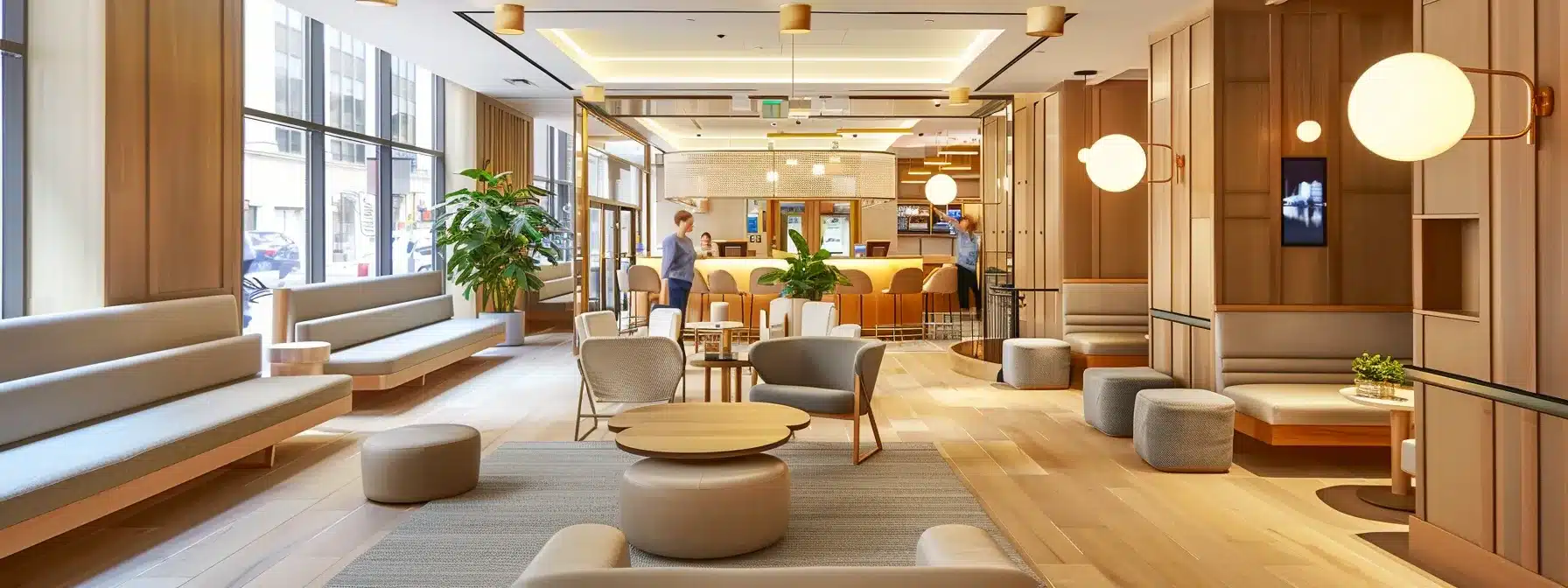
Families can use online resources and tools to gather detailed information on dementia-friendly assisted living options in New York City. Active family involvement and practical decision-making tips for caregivers enhance the selection process, ensuring options align with their care needs.
Utilizing Online Resources and Tools
The professional team advises families to use online platforms that provide detailed listings and reviews for dementia-friendly assisted living communities in New York City. The tools allow users to filter options based on specialized care programs, location, and affordability to make informed decision-making easier.
The websites offer interactive maps, real-life testimonials, and clear comparisons of facility features:
- Personalized care program details
- Resident and family reviews
- Interactive maps with location and service highlights
These tools serve as a practical guide for families, offering actionable insights and strategies to find the most suitable assisted living community for their loved ones.
Importance of Family Involvement in Selection
The involvement of family members profoundly influences the decision-making process during the search for a suitable dementia-friendly assisted living community. Their practical insights and personal experiences help ensure that the facility selected meets the care needs and lifestyle preferences of each resident.
Family participation fosters clear communication with providers and supports tailored care arrangements that prioritize the resident’s well-being. Their direct input and careful evaluation of program details guide a well-informed selection, offering reassurance and confidence during this critical transition.
Decision-Making Tips for Families and Caregivers
Families and caregivers benefit from clear decision-making tips when choosing dementia-friendly assisted living communities in New York City. Experts recommend gathering detailed information about each facility’s care programs and engaging in direct discussions with the professional care team to ensure services match individual needs.
Practical insights emphasize the importance of personal visits to assess the atmosphere and verify care standards consistent with specialized dementia services. Active involvement in evaluating facility features helps families and caregivers make informed choices that provide comfort and quality support for their loved ones.
Families share their personal journeys, offering clear insights into daily life and care. Their stories reveal more of the genuine heart behind every home.
Stories From Families in Dementia-Friendly Assisted Living
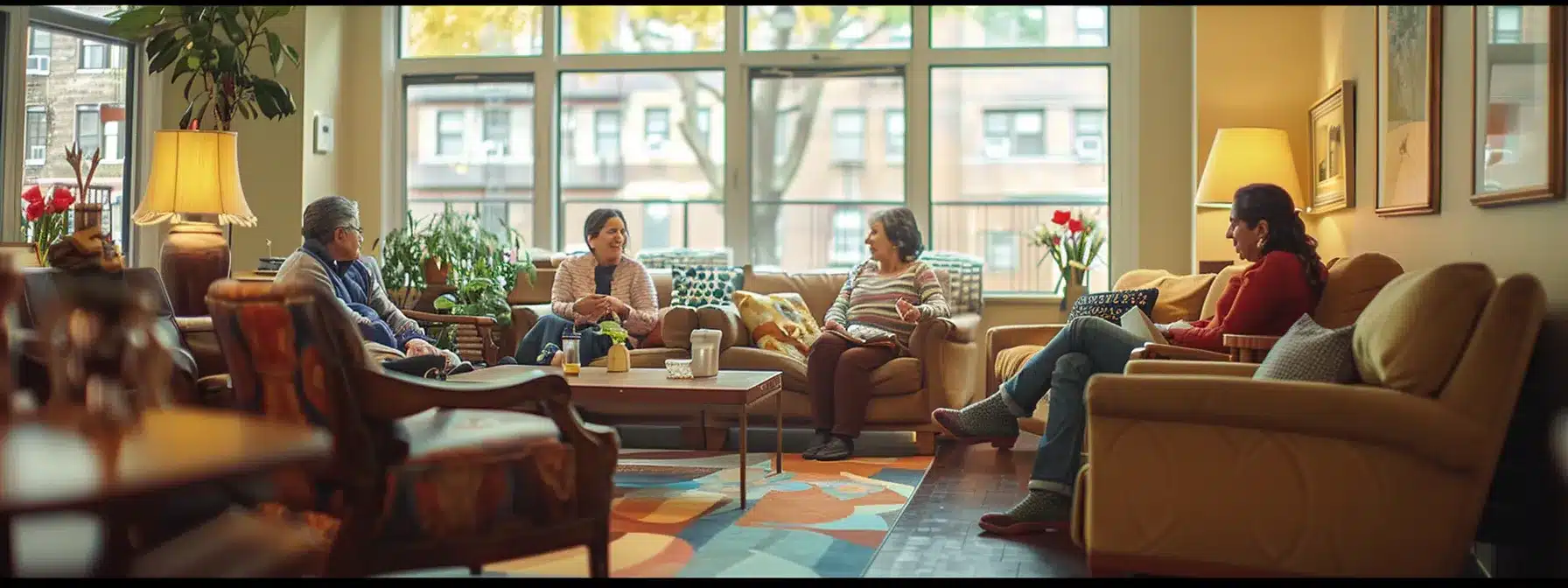
Families share inspiring transformation experiences and positive care outcomes at dementia-friendly assisted living communities in New York City. Testimonials on care quality and environment illustrate practical insights and valuable lessons learned by family caregivers. This section offers clear examples of improved well-being and supportive care, connecting real-life accounts with essential practical guidance.
Positive Outcomes and Transformation Experiences
Families report clear improvements in daily routines and overall health after transitioning to dementia-friendly assisted living facilities in New York City. Their experiences highlight improved cognitive engagement and personalized care that has led to a more positive outlook on life for both residents and their loved ones:
- Enhanced social activities tailored to individual needs
- Consistent medical oversight and personalized diet planning
- Supportive care routines that reduce stress and promote well-being
Personal testimonies from caregivers emphasize the transformation in resident behavior and heightened satisfaction with the specialized programs offered. These accounts underscore the value of a person-centered approach that addresses practical needs and offers meaningful daily support.
Testimonials on Care Quality and Environment
The testimonials collected from families highlight clear improvements in care quality at dementia-friendly assisted living facilities in New York City. Caregivers consistently report that personalized programs and continuous medical supervision have led to noticeable improvements in resident well-being and daily routines.
Families share detailed examples of the positive environment, emphasizing the consistent support provided by professional caregivers:
Lessons Learned From Family Caregivers
Family caregivers at Memory Lane Assisted Living have learned to prioritize clear communication and structured routines for effective dementia care, ensuring residents’ daily needs are met in a calm and secure setting:
- Implementing personalized care plans tailored to each resident’s cognitive and physical needs
- Establishing daily schedules that blend medical care, nutrition, and social activities
- Maintaining open lines of communication between caregivers and family members for quick problem resolution
Experienced family caregivers emphasize the importance of practical insights gained from working with dedicated care teams and structured programs, which provide effective support and tangible improvements in residents’ overall quality of life.
Frequently Asked Questions
What services do NYC assisted living facilities provide for dementia care?
NYC assisted living facilities offer tailored memory care programs, constant supervision, structured daily routines, and individualized activities. Expert staff provide personalized attention and support to ensure comfort and stability for seniors with dementia.
How are costs determined in NYC assisted living communities?
NYC assisted living costs vary by room, care level, and extra services, while personal evaluations and facility features help set fees aligned with a person-centered approach to senior care.
Which resources help evaluate NYC assisted living options?
For assisted living evaluation in NYC, state listings, online directories, and facility tours offer insights for families. These resources aid in pinpointing effective, personalized memory and dementia care, much like Memory Lane Assisted Living‘s approach in Ypsilanti.
Can families share experiences about NYC assisted living communities?
Families can share experiences on dedicated community forums and review sites, offering insights into quality care, personalized service, and supportive environments in NYC assisted living communities.
What defines a facility as dementia friendly in NYC?
Dementia-friendly facilities in NYC provide specialized memory care with dedicated staff, secure settings, and tailored programs that focus on individual needs, ensuring residents receive personalized attention in a comfortable, home-like environment.
Conclusion
Dementia-friendly assisted living in New York City offers specialized environments that focus on both safety and personalized care. The facilities use structured programs and tailored daily routines to support the mental and physical well-being of residents. Family involvement and professional staff education help maintain clear communication and optimal care support. This approach ensures that individuals facing cognitive challenges receive the practical attention they need, leaving a lasting impact on their quality of life.
